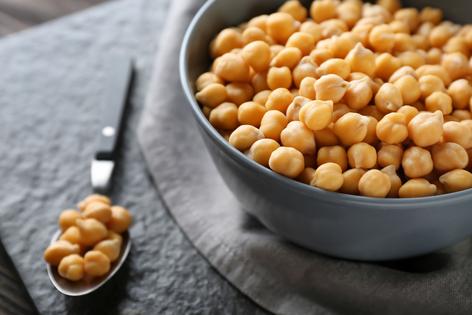Environmental Nutrition: Vegetarians and protein
Q: Am I getting enough protein if I follow a vegetarian or vegan diet?
A: Yes, if you consume enough high-protein plant foods. Non-vegetarians get, on average, about 1 1/2 times the recommended intake of protein (60 grams per day for someone who weighs 150 pounds). Vegans, who consume no animal foods, and vegetarians, who may consume eggs and dairy products, can get plenty of protein as well, but only if their diets contain lots of protein-rich plant foods, like beans, lentils, chickpeas, tofu, soy milk, nut butters, nuts, high-protein grains, such as quinoa and kamut, or high-protein meat substitutes.
An average veggie burger, for example, provides 11 grams of protein; one-half cup of lentils provides 9 grams; 2 tablespoons of peanut butter, 7 grams. Protein recommendations are even greater for adults over 65 (75 to 90 grams a day). That's because as you age, your body is not as efficient at converting protein into muscle tissue, so if you're an older vegan or vegetarian and your appetite is not what it used to be, it's even more important to get enough plant protein to prevent loss of muscle tissue.
(Environmental Nutrition is the award-winning independent newsletter written by nutrition experts dedicated to providing readers up-to-date, accurate information about health and nutrition in clear, concise English. For more information, visit www.environmentalnutrition.com.)







